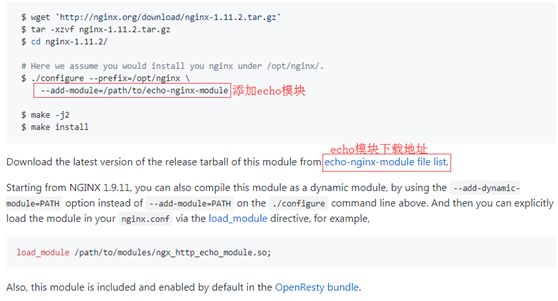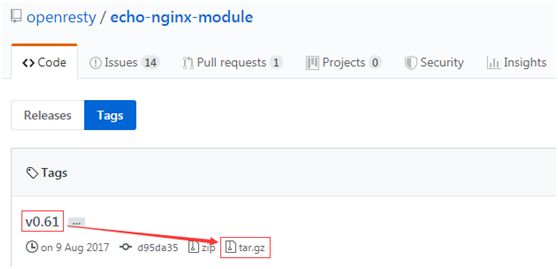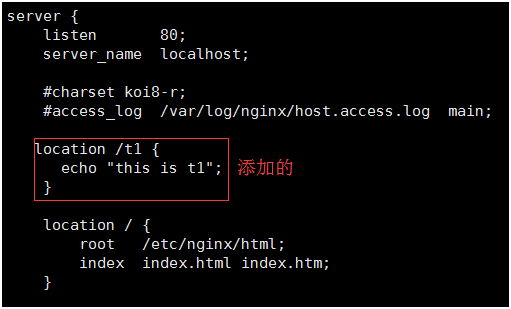一、前言
我在《0基础自学linux运维-2.1-源码、二进制、yum/apt安装区别》说过:
当yum/apt和二进制安装都不满足需求的情况下才用编译安装。主要思想是IT是讲究效率的时代,明明可以yum这么简单、方便就能完成的,偏偏就有人为了炫耀自己能力强用编译安装,结果“简单的事情复杂化”,也不方便维护,不是相当给自己挖个坑吗?
有能力不用急着去证明,但出问题你解决不了会证明你多么无能。
“大道至简”,用最简单的方式实现自己想要的东西,能用别人的轮子就没有必要自己造。
二、nginx编译安装
当我们需要ninx编译安装的时候,这里有一个小技巧,就是我先用虚拟机yum安装一个nignx,然后nginx -V知道它的基础编译参数,如果需要添加模块如echo模块、lua模块,nginx
yum默认是没有安装的,只需要在yum安装基础上得到的参数再加上相应模块的参数即可。
nginx模块安装可以看它的官方模块页面,里面每一个模块都有自己的安装说明。
最后把nginx
yum安装卸载,下载对应版本的源码包,进行编译安装就大功告成。
2.1 查看nginx编译参数
2.1.1 nginx yum安装
#安装常用的依赖,如果gcc、gcc++需要高版本的看我相关的文章
yum -y install gcc gcc++ zlib zlib-devel openssl openssl-devel pcre pcre-devel
#el7,其中el(Red Hat E nterprise L inux(EL)的缩写),7表示系统版本
#EL7是Red Hat 7.x,CentOS 7.x和CloudLinux 7.x的下载
rpm -ih http://nginx.org/packages/centos/7/noarch/RPMS/nginx-release-centos-7-0.el7.ngx.noarch.rpm
yum install nginx -y
2.1.2 查看nginx编译参数
[root@vm61 ~]# nginx -V
nginx version: nginx/1.16.0
built by gcc 4.8.5 20150623 (Red Hat 4.8.5-36) (GCC)
built with OpenSSL1.0.2k-fips 26 Jan 2017
TLS SNI support enabled
configure arguments:--prefix=/etc/nginx --sbin-path=/usr/sbin/nginx --modules-path=/usr/lib64/nginx/modules--conf-path=/etc/nginx/nginx.conf --error-log-path=/var/log/nginx/error.log--http-log-path=/var/log/nginx/access.log --pid-path=/var/run/nginx.pid--lock-path=/var/run/nginx.lock --http-client-body-temp-path=/var/cache/nginx/client_temp--http-proxy-temp-path=/var/cache/nginx/proxy_temp--http-fastcgi-temp-path=/var/cache/nginx/fastcgi_temp--http-uwsgi-temp-path=/var/cache/nginx/uwsgi_temp--http-scgi-temp-path=/var/cache/nginx/scgi_temp --user=nginx --group=nginx--with-compat --with-file-aio --with-threads --with-http_addition_module--with-http_auth_request_module --with-http_dav_module --with-http_flv_module--with-http_gunzip_module --with-http_gzip_static_module --with-http_mp4_module--with-http_random_index_module --with-http_realip_module--with-http_secure_link_module --with-http_slice_module --with-http_ssl_module--with-http_stub_status_module --with-http_sub_module --with-http_v2_module--with-mail --with-mail_ssl_module --with-stream --with-stream_realip_module --with-stream_ssl_module--with-stream_ssl_preread_module--with-cc-opt='-O2 -g -pipe -Wall -Wp,-D_FORTIFY_SOURCE=2-fexceptions -fstack-protector-strong --param=ssp-buffer-size=4-grecord-gcc-switches -m64 -mtune=generic -fPIC' --with-ld-opt='-Wl,-z,relro-Wl,-z,now -pie'
有些特殊的选项可以不先,如下面的gcc选项不要
--with-cc-opt='-O2 -g -pipe -Wall-Wp,-D_FORTIFY_SOURCE=2 -fexceptions -fstack-protector-strong--param=ssp-buffer-size=4 -grecord-gcc-switches -m64 -mtune=generic -fPIC'--with-ld-opt='-Wl,-z,relro -Wl,-z,now -pie'
我把安美化一下效果如下:其中“空格+\”表示还没输入结束,换行继续。
--prefix=/etc/nginx --sbin-path=/usr/sbin/nginx \
--modules-path=/usr/lib64/nginx/modules \
--conf-path=/etc/nginx/nginx.conf \
--error-log-path=/var/log/nginx/error.log \
--http-log-path=/var/log/nginx/access.log \
--pid-path=/var/run/nginx.pid \
--lock-path=/var/run/nginx.lock \
--http-client-body-temp-path=/var/cache/nginx/client_temp \
--http-proxy-temp-path=/var/cache/nginx/proxy_temp \
--http-fastcgi-temp-path=/var/cache/nginx/fastcgi_temp \
--http-uwsgi-temp-path=/var/cache/nginx/uwsgi_temp \
--http-scgi-temp-path=/var/cache/nginx/scgi_temp\
--user=nginx --group=nginx --with-compat --with-file-aio \
--with-threads --with-http_addition_module \
--with-http_auth_request_module --with-http_dav_module \
--with-http_flv_module --with-http_gunzip_module \
--with-http_gzip_static_module --with-http_mp4_module \
--with-http_random_index_module --with-http_realip_module \
--with-http_secure_link_module --with-http_slice_module \
--with-http_ssl_module --with-http_stub_status_module \
--with-http_sub_module --with-http_v2_module --with-mail \
--with-mail_ssl_module --with-stream --with-stream_realip_module \
--with-stream_ssl_module --with-stream_ssl_preread_module
得到上面的编译参数,可以把nginx yum安装卸载了,卸载之前把/etc/nginx/nginx.conf和/etc/nginx/conf.d/default.conf备份出来,这样就可以当yum之前的习惯来使用了。
#备份/etc/nginx/nginx.conf和/etc/nginx/conf.d/default.conf
#备份启动文件
mkdir -pv /disk1/tools/nginx
cd /disk1/tools/nginx
cp /etc/nginx/nginx.conf .
cp
/etc/nginx/conf.d/default.conf .
cp /usr/lib/systemd/system/nginx.service
.
#卸载nignx,如果是在自己的虚拟机并不是在要编译安装的机子,不用卸载也行
yum remove nginx –y
2.2 编译安装
我以安装nginx插件echo为例子,进行编译安装。
2.2.1 查看echo模块安装说明
Nginx官网所支持的模块列表为https://www.nginx.com/resources/wiki/modules/
打找echo模块的安装说明https://github.com/openresty/echo-nginx-module#installation
按照步骤进行安装:
2.2.2 下载nignx源码
打开nginx下载官网http://nginx.org/en/download.html找到对应的1.16源码包
或直接使用wget命令:
wget http://nginx.org/download/nginx-1.16.0.tar.gz
2.2.3 下载echo模块
https://github.com/openresty/echo-nginx-module/tags 目前最新版本为0.61
#不要用wget下载,会变样的,直接点击下载就好,安装lrzsz(yum install rzsz -y)然后#用cd命令进到要存储echo安装模块的目录中,最后把echo模块的tar.gz包拖到xshell
#界面中就行了就会自动上传,并解压,我这里统一放在/disk1/tools中
tar -xf echo-nginx-module-0.61.tar.gz
2.2.4 安装
#安装常用的依赖,如果gcc、gcc++需要高版本的看我相关的文章
yum -y install gcc gcc++ zlib zlib-devel openssl openssl-devel pcre pcre-devel
#解压刚刚下载的nginx-1.16.0.tar.gz包
tar -xf nginx-1.16.0.tar.gz
cd nginx-1.16.0
#如果不懂./configure用法的话可以使用./configure --hlep命令
./configure --prefix=/etc/nginx
--sbin-path=/usr/sbin/nginx \
--modules-path=/usr/lib64/nginx/modules \
--conf-path=/etc/nginx/nginx.conf \
--error-log-path=/var/log/nginx/error.log \
--http-log-path=/var/log/nginx/access.log \
--pid-path=/var/run/nginx.pid \
--lock-path=/var/run/nginx.lock \
--http-client-body-temp-path=/var/cache/nginx/client_temp \
--http-proxy-temp-path=/var/cache/nginx/proxy_temp \
--http-fastcgi-temp-path=/var/cache/nginx/fastcgi_temp \
--http-uwsgi-temp-path=/var/cache/nginx/uwsgi_temp \
--http-scgi-temp-path=/var/cache/nginx/scgi_temp \
--user=nginx --group=nginx --with-compat --with-file-aio \
--with-threads --with-http_addition_module \
--with-http_auth_request_module --with-http_dav_module \
--with-http_flv_module --with-http_gunzip_module \
--with-http_gzip_static_module --with-http_mp4_module \
--with-http_random_index_module --with-http_realip_module \
--with-http_secure_link_module --with-http_slice_module \
--with-http_ssl_module --with-http_stub_status_module \
--with-http_sub_module --with-http_v2_module --with-mail \
--with-mail_ssl_module --with-stream --with-stream_realip_module \
--with-stream_ssl_module --with-stream_ssl_preread_module \
--add-module=/disk1/tools/echo-nginx-module-0.61
#编译
make
make install
cd ..
rm -rf nginx-1.16.0 echo-nginx-module-0.61
注:有的编译用的是cmaek,如果cmake错的话,解决错误之后,cmake前删除前一次产生的cmakecache.txt再进行cmake即可
2.3 修改配置
整一下nginx以yum方式安装的配置,个人比较习惯,因为我是在本机yum改为源码安装,所以配置直接复制,如果是非其它机子,上传一下即可。
#添加nginx用户,如果是yum安装过则不用添加
groupadd nginx
useradd -s /sbin/nologin -g
nginx -M nginx
cd /etc/nginx/
mv nginx.conf nginx.conf.orig
cp /disk1/tools/nginx/nginx.conf .
#建立原conf.d目录
mkdir conf.d
cd conf.d/
cp /disk1/tools/nginx/default.conf .
#yum中的default.conf的hmlt默认为/usr/share/nginx/html,源码安装默认为
# /etc/nginx/html,所以要修改一下
sed -i 's#/usr/share/nginx/html#/etc/nginx/html#g' default.conf
cat default.conf
#语法检查一下
[root@vm61 conf.d]# nginx -t
nginx: the configuration file
/etc/nginx/nginx.conf syntax is ok
nginx: [emerg] mkdir()
"/var/cache/nginx/client_temp" failed (2: No such file or directory)
nginx: configuration file
/etc/nginx/nginx.conf test failed
#解决方法,建立相关目录
mkdir -pv /var/cache/nginx/client_temp
chown nginx.nginx -R /var/cache/nginx
nginx -t
2.4 复制启动脚本
cp/disk1/tools/nginx/nginx.service /usr/lib/systemd/system/nginx.service
#启动nginx
systemctl start nginx
systemctl status nginx
#打开浏览器输入nginx所在的IP地址,我这里是192.168.3.61,效果如下:
三、测试
echo插件安装了,现在测试一下echo功能,操作如下:
cd /etc/nginx/conf.d/
cp default.conf default.conf.orig
vi default.conf
#在“location
/{ ... }上一行添加
location /t1 {
echo "this is t1"
}
#输入“:wq”退出
#平滑重启,生产环境建议用平滑重启,如果不行再重启
nginx -t
四、结束语
我这里是借助nginx yum安装,借用了它的配置及启动脚本,因为是官方的所以一般会比自己写的好,也实现了用最简单的方法达到自己的目的。
无论安装什么插件一般看插件官方的document,要么就是看所在软件的模块列表是否有该插件的安装文档。然后照着安装就行了。我相信你也会用nginx安装其它插件了,如lua这个也是安装频率比较高的。






